Coronavirus pandemic 'a disaster' for gambling addicts
- Published
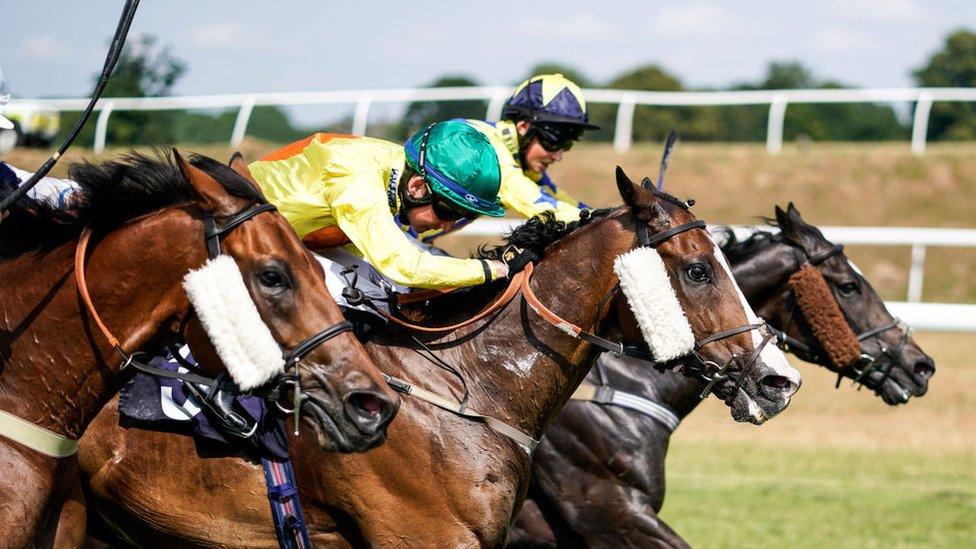
Sports cancellations are increasing the risk people will return to gambling, a Welsh MP has said
The coronavirus pandemic has been "absolutely disastrous" for people suffering from gambling addiction, an MP has said.
Boredom, sport cancellations and money freed-up from mortgage holidays could increase the risk, according to Swansea East MP Carolyn Harris.
She said she is getting reports of people returning to gambling after seeing online ads.
Many betting shops and gambling sites are removing adverts from TV and radio.
But campaigners want to see this extended to social media and direct marketing.
On Monday the Betting and Gaming Council (BGC) announced that all advertising from their members had been removed from broadcast media for at least six weeks.
Ms Harris said: "Under normal circumstances I have huge worries about the ability of this industry to captivate, and hold hostage almost, people that it ensnares in its trap.
"And it's just going to get worse.
"A lot of it will be boredom. Especially with a lack of sport on television, people will turn to alternative kinds of enjoyment or activity.
"In many cases they will lose everything they own, and in some really tragic cases they will lose their lives."
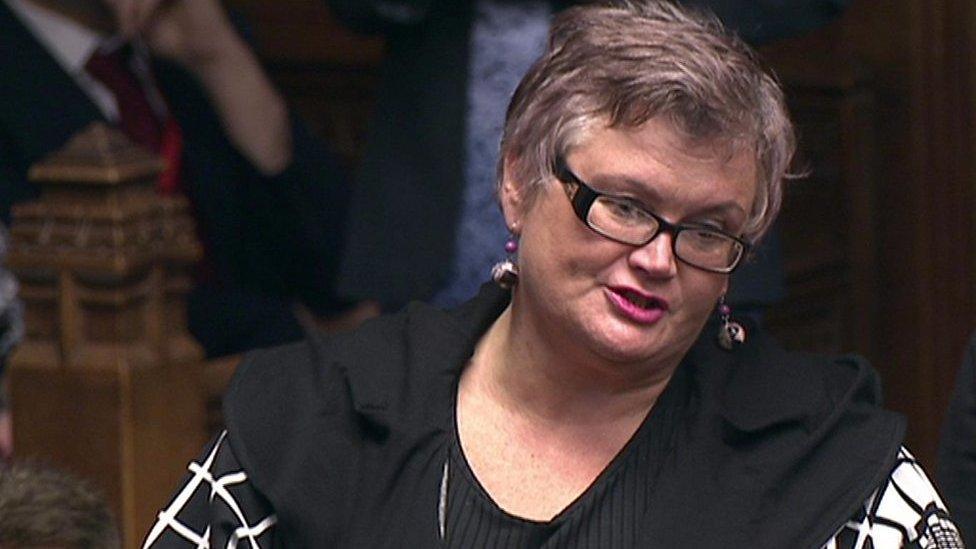
Carolyn Harris said she had heard reports of former gamblers returning to it because of a text message or emails
Ms Harris added she is concerned that mortgage holidays to help people financially during the crisis may have unintended consequences.
"People who have a problem, and won't have to pay for their mortgage, their rent, their council tax, or their credit card because they've explained to their lender that they've been furloughed or laid off work - they will have extra money and will use that to gamble," she said.
"More and more I'm getting stories now of people who haven't gambled for a while, but have returned to it because they're being tempted by text messages or emails, or seeing gambling adverts on their Facebook page."
The MP welcomed the BGC's decision, but said all advertising on all platforms should be removed.
She added: "In the pandemic times, when it is viewed by this industry as an alternative activity, it is absolutely disastrous. If they didn't believe that they would not have done what they did yesterday and withdrawn advertising."

I've relapsed after 500 days without gambling
Katie - not her real name - from Cardiff said she has relapsed since the coronavirus lockdown came into effect.
"I'd gone over 500 days without gambling, in and out of recovery.
"I decided for some reason to have a look at the lottery. It was driving me mad because there's an ad on at the moment," she said.
"It let me deposit money onto it so I did end up relapsing and spending quite a lot of money. I got into a bit of a state over it and now I'm at a point where I've been unable to pay my bills or anything.
"I've had messages and emails from gambling companies that I'd not used for ages - the ads have been really difficult."

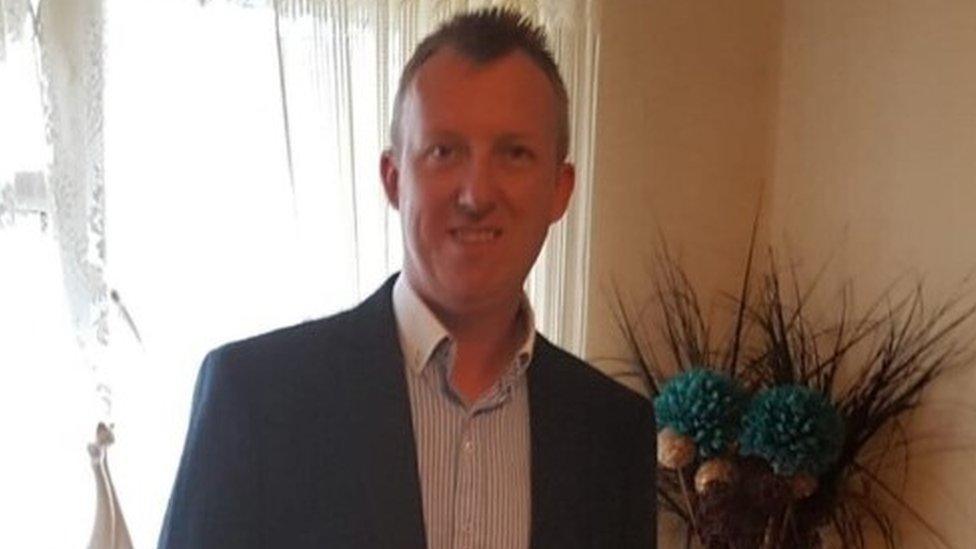
Nick Phillips said he has noticed a huge increase in online gaming among those he knows with gambling problems
Nick Phillips, who suffered with a 20-year gambling addiction but has been clean for about two years, said he has noticed a "huge increase in online gaming" among those he knows with gambling problems.
"Because the sports betting market isn't available, people with gambling problems are moving online to other products like slots and casino roulette scenario games," he said.
"By design, these have far more dangerous consequences to people rather than sports betting."
Mr Phillips, who is now a representative of advocacy Gamvisory and member of Swansea's Gamblers Anonymous, said poor mental health would also impact the risk of compulsive gambling.
He welcomed the move by the BGC's members to suspend TV and radio gambling advertising, but added: "This voluntary ban should already be extended to direct marketing such as text messaging promotions, which have increased during the lockdown."
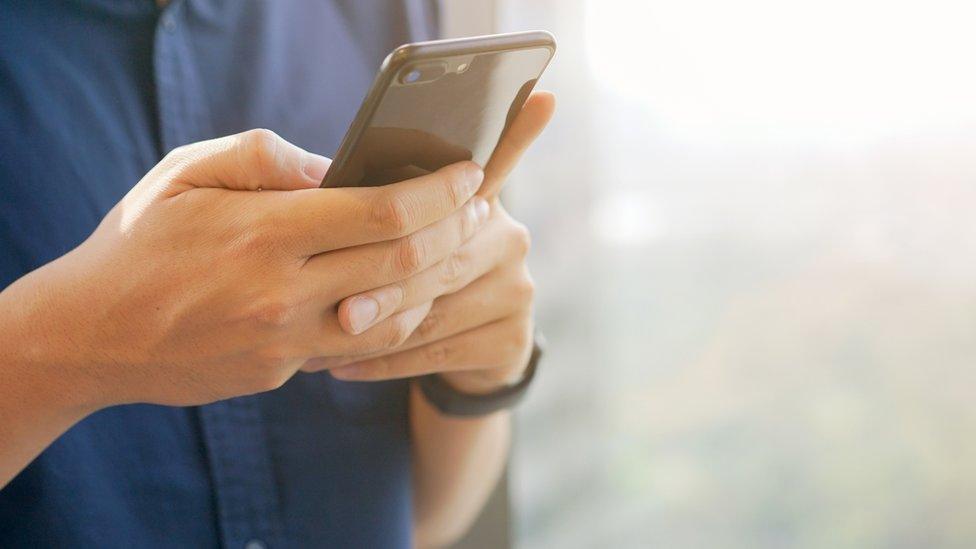
Campaigners want social media advertising to be scrapped
The BGC, which represents betting shops, and online betting and gaming firms, said direct marketing via social media, emails or SMS by BGC members has "significantly dropped".
"Existing TV and radio advertising slots will be replaced by safer gambling messages, donated to charities or removed from broadcast where contracts permit," it said.
Last month the body also introduced a list of 10 pledges for its members to follow during the pandemic, which included increasing safer gambling messages across all sites and signposting help through organisations like GAMCARE and the National Gambling Helpline.
On Monday Neil McArthur, the chief executive of the Gambling Commission, responsible for regulating gambling in the UK, told MPs operators were warned not to exploit the current crisis.
He told the Public Accounts Committee: "When needed we've taken enforcement action."
He said a YouGov survey found one in 10 consumers who haven't gambled at all in the past year" say they're likely to turn to gambling in the next four weeks".
- Attribution
- Published14 April 2020
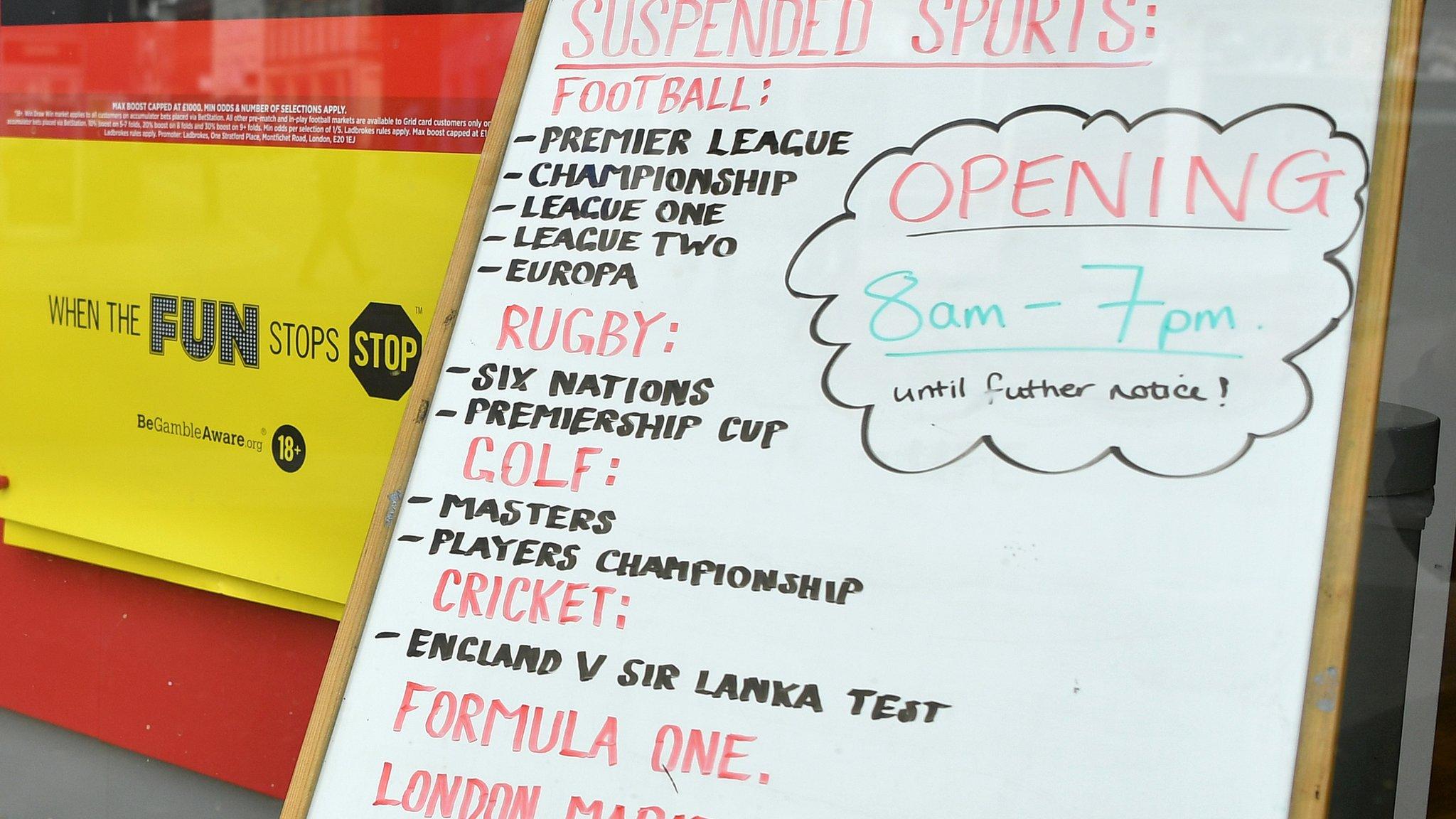
- Published27 April 2020
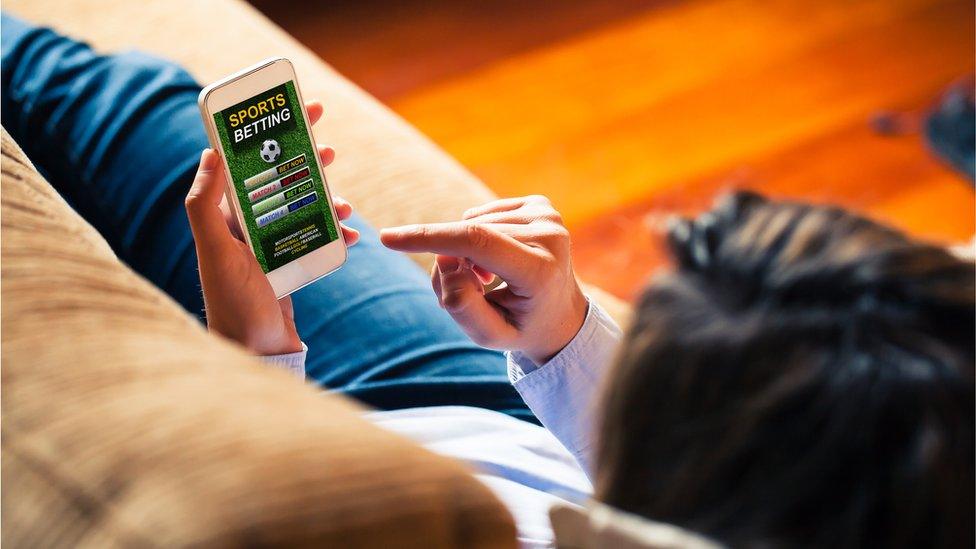
- Published23 January 2020
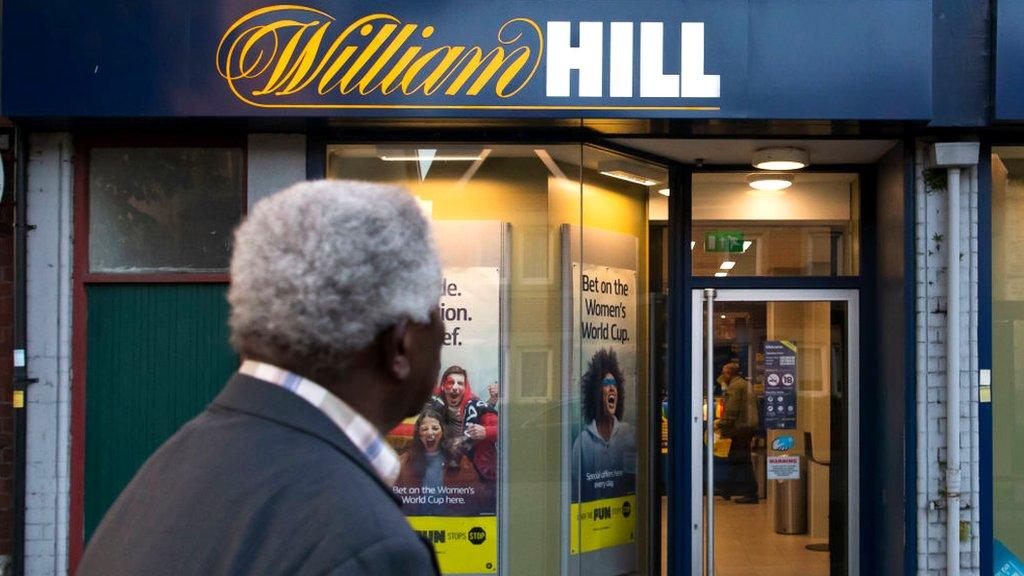
- Published14 January 2020
